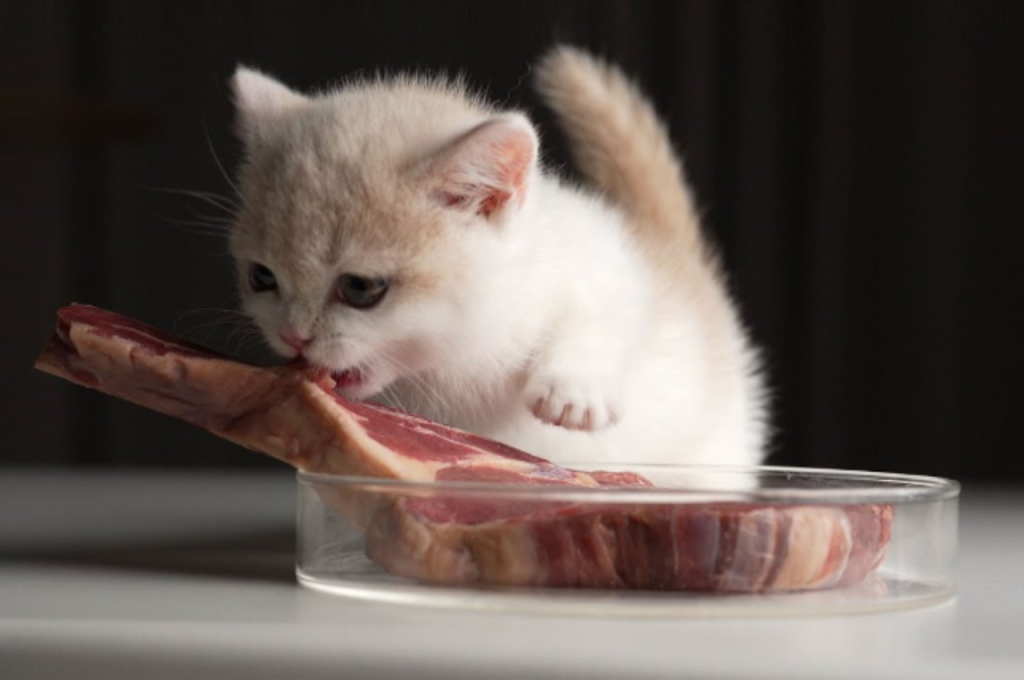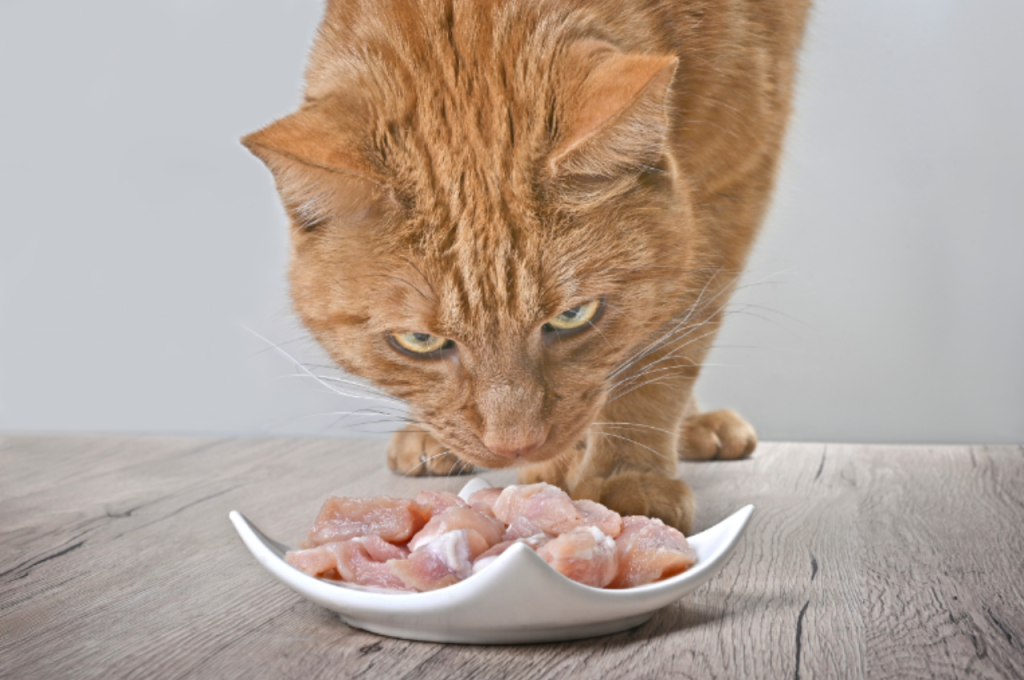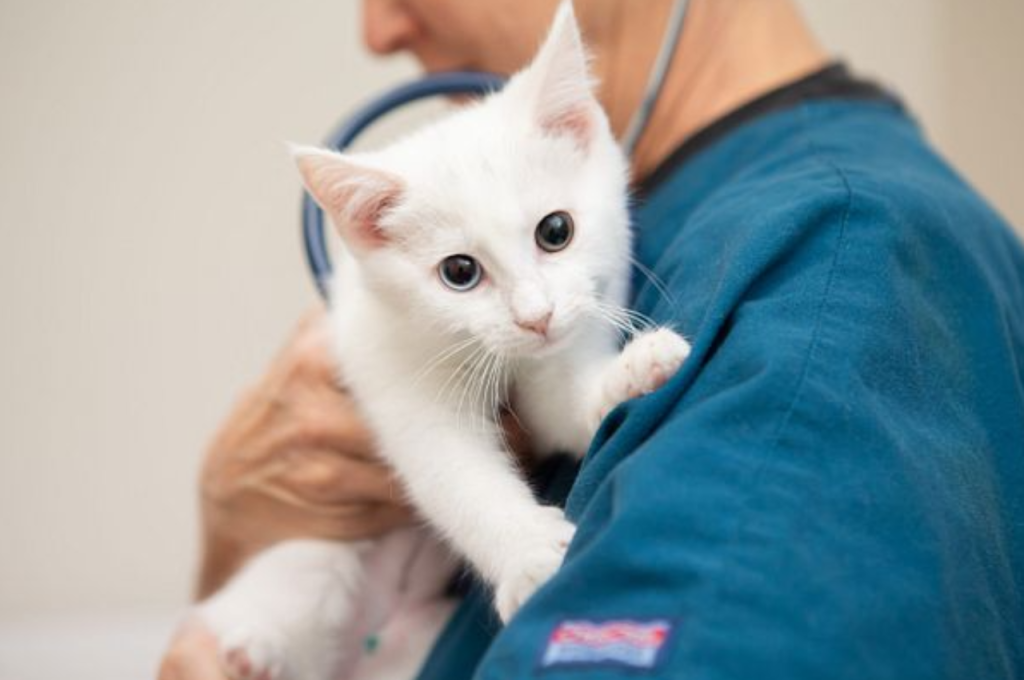Selecting the most suitable meat for your cat involves a comprehensive consideration of various factors. It entails prioritizing options that are rich in protein, a crucial component of their diet essential for muscle development, energy, and overall health. Additionally, minimizing the presence of carbohydrates is key, as excessive carb intake can lead to weight gain, diabetes, and other health issues in felines. By meticulously assessing these dietary elements, you can ensure that your beloved companion receives a nutritionally balanced diet tailored to meet their specific needs, promoting longevity, vitality, and well-being.
Nutritional Needs of Cats
Cats require a diet rich in high-quality meat to meet their nutritional needs, with options like chicken, turkey, and beef. These meats provide essential amino acids and vitamins for a cat’s overall health and well-being. It is important to provide a balanced diet to ensure they receive all the necessary nutrients.

Protein Requirements
Cats are obligate carnivores, which means that they require high amounts of protein in their diet. Protein is essential for cats as it helps in building and repairing tissues, supporting the immune system, and providing energy. While dogs and humans can get protein from both plant and animal sources, cats rely on animal-based proteins for optimal health. The recommended protein intake for cats is around 26-45% of their daily caloric intake.
Fat Requirements
Fat is another crucial component of a cat’s diet. It serves as a concentrated energy source and aids in the absorption of fat-soluble vitamins. Additionally, fat provides insulation and protection to vital organs in the body. Cats require a higher proportion of fat in their diet compared to other animals. The ideal range for fat intake in a cat’s diet is approximately 20-35% of their daily caloric intake.
Nutrient Balance
Maintaining a proper balance of nutrients is crucial for a cat’s overall well-being. Apart from protein and fat, cats also require other essential nutrients such as vitamins, minerals, and carbohydrates. These nutrients are necessary for various bodily functions, including proper growth, development, and maintenance. Ensuring a balanced diet helps prevent nutritional deficiencies and associated health problems in cats. It is always recommended to consult a veterinarian to determine the specific nutrient requirements for your cat based on its age, breed, and health condition.
Benefits of Meat in A Cat’s Diet
Cats are obligate carnivores, which means they require a diet primarily composed of meat to thrive. Including meat in a cat’s diet is essential for their overall health and well-being. High-quality protein found in meat serves as a crucial building block for their muscles, organs, and immune system.
High-quality Protein Source
Meat serves as a high-quality protein source for cats, aiding in the development and maintenance of their lean muscle mass. Protein from meat helps fulfill their energy needs and supports overall growth and development. Feeding your cat with meat ensures they receive the necessary amino acids essential for their optimal health and vitality.
Essential Nutrients Found in Meat
Meat provides essential nutrients such as taurine, arachidonic acid, and vitamin A that are vital for a cat’s overall health. These nutrients support their cardiovascular health, vision, reproductive system, and immune function. By including meat in your cat’s diet, you can ensure they receive a well-rounded array of nutrients necessary for their overall well-being.
Types of Meat Suitable for Cats
When it comes to feeding our feline friends, it’s important to provide them with a balanced and nutritious diet. While cats are obligate carnivores, meaning they need meat to thrive, not all types of meat are suitable for their unique dietary needs. In this article, we will explore the types of meat that are best for cats and the benefits they can provide.
Chicken
Chicken is a popular choice of meat for cats due to its high protein content and palatability. It is a lean meat that contains essential amino acids, which are crucial for a cat’s overall health and development. Additionally, chicken is a good source of vitamin B6 and niacin, both of which support a healthy nervous system.
Turkey
Similar to chicken, turkey is a lean protein source that is rich in essential amino acids. It is also a good source of vitamins B3 and B6, which help maintain a healthy coat and promote optimal digestion. Turkey is a great alternative to chicken for cats with allergies or sensitivities.
Beef
Beef is another meat option that can be safely incorporated into a cat’s diet. It is a good source of high-quality protein and essential nutrients like iron and zinc. However, it is important to note that beef should be lean and cooked thoroughly to avoid the risk of bacterial contamination.
Fish
Fish is often a favorite among cats, and it can provide valuable nutrients such as omega-3 fatty acids, which promote a healthy coat and skin. However, it is crucial to feed fish in moderation due to its high levels of mercury and potential thiamine deficiency. It is also recommended to cook the fish thoroughly to eliminate any parasites.
Lamb
Lamb is a protein-rich meat that can offer variety to a cat’s diet. It contains essential amino acids and vitamins like B12, which support a healthy nervous system and red blood cell production. Lamb can be a suitable option for cats with food allergies or sensitivities to other types of meat.
Considerations When Choosing Meat
Cats are obligate carnivores, meaning their diet mainly consists of meat. When choosing meat for your feline companion, there are several considerations to keep in mind to ensure their health and well-being.

Quality of the Meat
Opt for high-quality, lean meats such as chicken, turkey, and beef. These meats are rich in essential nutrients that cats require for proper growth and development. Selecting meats from reputable sources can help minimize the risk of harmful additives or contaminants.
Avoiding Seasonings and Additives
When choosing meat for your cat, it’s crucial to avoid seasonings and additives. These can be harmful to your cat’s digestive system and may cause adverse reactions. Opt for plain, unseasoned meats to ensure your cat’s safety and well-being.
Cooked vs. Raw Meat
The debate between cooked and raw meat for cats is a hot topic. While raw meat can be closer to a cat’s natural diet, it carries a higher risk of bacterial contamination. On the other hand, cooked meat eliminates the risk of bacteria but may lose some of its natural nutrients through the cooking process. Consult with your veterinarian to determine the best option for your cat’s specific needs.
Potential Risks of Certain Meats
Certain meats can pose potential risks to cats, such as pork and bacon, due to their high-fat content and seasoning. It is best to choose lean meats like turkey and chicken, which are easier for cats to digest and provide essential nutrients for their health.
Allergies
Some cats may develop allergies to certain meats like beef or poultry, leading to digestive issues. Symptoms of meat allergies in cats include vomiting, diarrhea, itchy skin, and hair loss.
Consult a vet if you suspect your cat is experiencing allergies to a specific type of meat.
Toxicity Concerns
Certain meats can be toxic to cats if consumed in large quantities or raw, such as pork and liver.
Toxicity from meats can lead to organ damage and illness in cats.
- Always cook meats thoroughly before feeding them to your cat.
- Avoid meats that are highly processed or seasoned with onions or garlic.
Incorporating Meat into A Cat’s Diet
Incorporating meat into a cat’s diet is essential for their health, but choosing the best meat can be confusing. Opt for high-quality animal proteins like chicken or turkey, as they provide the necessary nutrients for their well-being.
Balanced Meal Preparation
Cats require a balanced diet rich in protein, so preparing meals with varying meat sources is key.
- Include different cuts such as chicken, turkey, and lamb for nutritional diversity.
- Supplement with organ meats like liver for essential vitamins and minerals.
Consult a vet for portion control and ensure nutritional adequacy.
Transitioning to A Meat-based Diet
Gradually introduce new meats to prevent digestive issues in cats.
- Start with small amounts of cooked meat mixed with the regular diet.
- Increase the meat portion gradually over a week to avoid upsetting the stomach.
Observe your cat for signs of allergies or digestive sensitivity during the transition.
Consulting with A Veterinarian
When it comes to providing the best nutrition for our feline friends, consulting with a veterinarian is an essential step. Professional advice from a trusted vet can help cat owners make informed decisions about their pet’s dietary needs. From determining the most suitable meat options to creating tailored diet plans, veterinarians play a crucial role in ensuring the health and well-being of our furry companions.
Professional Advice
A veterinarian has the expertise to assess a cat’s individual needs and recommend the best meat options based on factors such as age, weight, and overall health. They can provide valuable insights into the nutritional requirements of cats and suggest specific meats that are rich in essential nutrients like protein, vitamins, and minerals.

Consulting with a veterinarian allows cat owners to address any concerns or questions they may have about different types of meat. It’s essential to understand that not all meats are suitable for cats, and some may even be harmful. By seeking professional advice, cat owners can gain a comprehensive understanding of the benefits and potential risks associated with different meat choices.
Tailored Diet Plans
One of the key advantages of consulting with a veterinarian is their ability to create tailored diet plans for cats. Each cat may have unique dietary requirements, which can be addressed by a personalized diet plan. A vet can assess the cat’s current diet and make recommendations to ensure it receives the necessary nutrients from meat sources.
The tailored diet plan may involve incorporating a variety of meats to provide a balanced diet. Some cats may thrive on lean meats like chicken or turkey, while others may require a different protein source, such as fish or rabbit. The veterinarian will take into account any allergies, sensitivities, or specific health conditions that may influence the choice of meat options.
The diet plans created by veterinarians focus on meeting the cat’s nutritional needs while also considering its preferences. Cats have specific dietary requirements that differ from other animals, and consulting with a veterinarian ensures these needs are met through appropriate meat choices. Additionally, a vet may also recommend supplements or specific preparations to enhance the nutritional value of the selected meats.
Conclusion
Considering the dietary needs of cats, it is clear that meat should be a primary component of their meals. However, the best meat for cats depends on various factors such as their age, health condition, and personal preferences. Whether it’s chicken, turkey, beef, or fish, providing high-quality, balanced meat sources will ensure optimal health and nutrition for our feline friends.
Remember to consult with your veterinarian to determine the best meat options and feeding guidelines for your cat’s specific needs.
